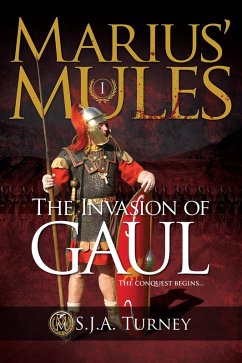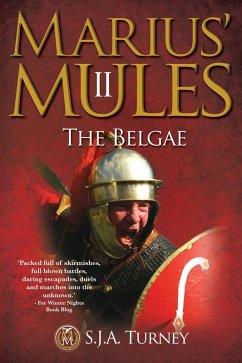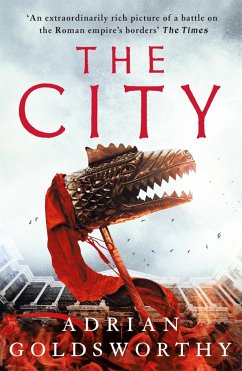
Julius Caesar - The Original Classic Edition (eBook, ePUB)

PAYBACK Punkte
2 °P sammeln!
Julius Caesar is a tale of honor and betrayal. Pompey, a beloved Roman leader, is defeated in civil war with Caesar. A small brotherhood, let by Marcus Brutus, is still devoted to him after his death, and wants nothing less than the assassination of their new leader. I had expected Caesars death (Et tu, Bruté? Then fall Caesar.) to be near the end of the book. However, it turned out to be within the third of five acts. The rest of the book is devoted to the attempts by Brutuss followers and Marc Antony (a dear friend of Caesar, and Brutuss enemy) to get the populace to believe in and follow t...
Julius Caesar is a tale of honor and betrayal. Pompey, a beloved Roman leader, is defeated in civil war with Caesar. A small brotherhood, let by Marcus Brutus, is still devoted to him after his death, and wants nothing less than the assassination of their new leader. I had expected Caesars death (Et tu, Bruté? Then fall Caesar.) to be near the end of the book. However, it turned out to be within the third of five acts. The rest of the book is devoted to the attempts by Brutuss followers and Marc Antony (a dear friend of Caesar, and Brutuss enemy) to get the populace to believe in and follow that persons views, and turn them against the other peoples ideals. Marc Antony, an orator with the ability to, in essence, brainwash an entire city with a short speech (Friends, Romans, Countrymen, / Lend me your ears!), convinces Rome to turn on Brutuss brotherhood. How their conflict is settled is, by far, the most captivating and entrancing parts of the play.
With the plot discussed, I will move on to what makes this a challenging read: dialogue. Being a work from the Elizabethan Era, I (naively) expected words such as forsooth and manye more wordse endinge ine e. As it turned out, this was not the case. There were archaic words that would elicit cocked heads of confusion from the average person. My saviour from the confusion turned out to be the footnotes in one of the versions I read. The phrase They fall their crests, and like deceitful jades / Sink in the trial becomes They let their necks droop and, like weary nags, fail the test (Brutus, A4 S2, L26/27). One is forced to scrutinise every single word, in order to receive a complete understanding of the goings-on.
The unabridged version of Julius Caesar is definitely not a piece one reads in ones free time; rather, it should be considered a serious task. Once you put the book down, you transform from reader to philosopher. You will instinctively begin to ponder the issues in whatever part of the book that you have just completed. I, personally, read one act at a time, then closed my eyes (or reread the act) to mull over what had just transpired.
I was left with a better understanding of that portion, and a greater respect for the genius of Shakespeare.
I highly recommend it. So, what are you waiting on? Get to it!
With the plot discussed, I will move on to what makes this a challenging read: dialogue. Being a work from the Elizabethan Era, I (naively) expected words such as forsooth and manye more wordse endinge ine e. As it turned out, this was not the case. There were archaic words that would elicit cocked heads of confusion from the average person. My saviour from the confusion turned out to be the footnotes in one of the versions I read. The phrase They fall their crests, and like deceitful jades / Sink in the trial becomes They let their necks droop and, like weary nags, fail the test (Brutus, A4 S2, L26/27). One is forced to scrutinise every single word, in order to receive a complete understanding of the goings-on.
The unabridged version of Julius Caesar is definitely not a piece one reads in ones free time; rather, it should be considered a serious task. Once you put the book down, you transform from reader to philosopher. You will instinctively begin to ponder the issues in whatever part of the book that you have just completed. I, personally, read one act at a time, then closed my eyes (or reread the act) to mull over what had just transpired.
I was left with a better understanding of that portion, and a greater respect for the genius of Shakespeare.
I highly recommend it. So, what are you waiting on? Get to it!
Dieser Download kann aus rechtlichen Gründen nur mit Rechnungsadresse in A, D ausgeliefert werden.













